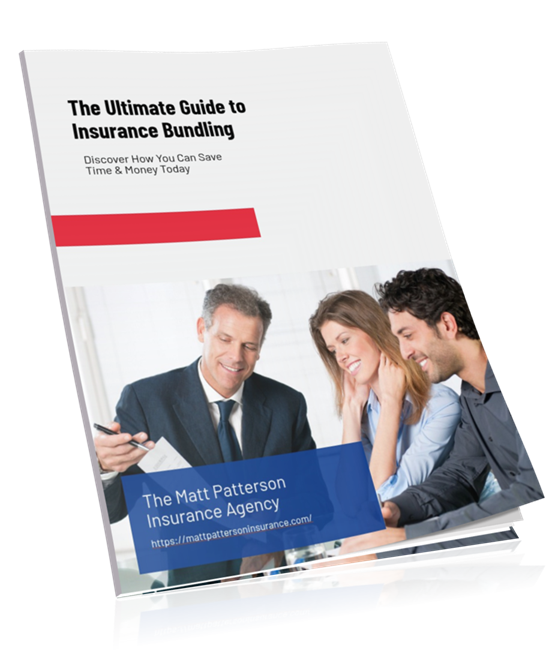Understanding the relationship between business insurance and a commercial lease is crucial for anyone running a business. This knowledge not only safeguards your business but also provides peace of mind knowing you’re business is protected in case of an unforeseen event.
Wimberley business insurance acts as a protective shield, covering various risks that might arise during your tenancy. It ensures that both tenants and landlords are protected against potential liabilities and financial losses, so it’s important to work with a reputable business insurance agency in Wimberley.
Below, we’ll establish:
- The essential role of business insurance in commercial leases.
- How it protects both tenants and landlords.
- Key types of insurance policies required under commercial lease agreements.
By the end, you’ll understand why having the right business insurance is indispensable when entering a commercial lease.
Understanding Business Insurance Quotes in Wimberley
Business insurance is crucial for protecting businesses from various risks and liabilities. It includes different policies that cover specific areas of business operations, ensuring financial stability and legal compliance.
Common Types of Business Insurance Policies
1. General Liability Insurance
This policy protects against third-party claims involving bodily injury, property damage, and advertising injuries. It’s essential for covering legal fees and settlements arising from accidents or negligence claims.
2. Workers’ Compensation Insurance
Workers’ compensation insurance is mandatory in most states for businesses with employees. It covers medical expenses and lost wages for employees injured on the job, reducing financial strain on the business.
3. Business Owner’s Policy (BOP)
A Business Owner’s Policy (BOP) combines general liability insurance with commercial property insurance. It offers coverage for property damage, loss, and theft alongside liability protection.
Benefits of Bundling Policies
Cost-effectiveness is a significant advantage of bundling multiple insurance policies. By opting for a Business Owner’s Policy (BOP), you can often secure comprehensive coverage at a lower premium compared to purchasing individual policies separately. This approach not only simplifies management but also ensures that your business remains adequately protected from various risks.
Legal Requirements for Commercial Leases
When renting commercial property, understanding the insurance requirements is crucial. Most commercial leases stipulate specific types of insurance coverage that tenants must carry to mitigate potential risks. These typically include:
- General Liability Insurance: This covers bodily injury and property damage caused by business operations.
- Workers’ Compensation Insurance: Required in most states, it provides coverage for employee injuries.
- Commercial Property Insurance: Protects the tenant’s assets within the leased space.
Providing proof of insurance to landlords is essential. This is usually done through a Certificate of Insurance (COI). A COI serves as evidence that you have the required coverage in place, detailing policy limits and effective dates. Landlords often require tenants to name them as an additional insured on these policies, ensuring they are also protected under your coverage.
Common coverage limits specified in leases can vary but often include minimums such as:
$1 million per occurrence for general liability
- $2 million aggregate limit
- Specific limits for property and workers’ compensation insurance
Adhering to these requirements not only ensures compliance with your lease agreement but also safeguards both parties from potential financial losses related to accidents, injuries, or property damage.
Essential Types of Insurance for Commercial Leases
General Liability Insurance: Protecting Against Third-Party Claims
General Liability Insurance (GLI) is a must-have for any business with a commercial lease. It plays a crucial role in protecting your business from claims and lawsuits made by people who are not directly involved in your operations.
What Does General Liability Insurance Do?
Covers Third-Party Claims: GLI takes care of claims involving injuries or damage to property caused by clients, customers, or visitors on your premises. For instance, if a customer trips and falls in your store and decides to sue, GLI can cover their medical costs and legal expenses.
Protects Against Advertising Injuries: It also provides protection against claims related to advertising injuries such as defamation, libel, or slander resulting from your marketing efforts.
The Financial Risks of Not Having Liability Coverage
Running your business without liability insurance puts you at risk of facing significant financial consequences:
Legal Costs and Settlements: Legal battles can drain your resources. If you don’t have GLI, you’ll have to pay for all legal fees, settlements, or judgments out of your own pocket. Even just one lawsuit can severely impact your finances.
Damage to Business Reputation: Dealing with claims without proper coverage could harm your business reputation. Customers feel more secure knowing that a business has insurance.
Violation of Lease Agreement: Many commercial leases require tenants to have a certain level of liability insurance. If you fail to meet these requirements, it could result in a breach of contract, leading to potential eviction or additional penalties.
In simple terms, GLI not only protects your business from unexpected incidents but also ensures that you comply with the liability insurance requirements stated in most commercial leases.
Workers’ Compensation Insurance: A Legal Necessity for Businesses with Employees
Workers’ Compensation Insurance is vital for businesses with employees, providing financial protection against workplace injuries and illnesses. In most states, this type of insurance is legally required, emphasizing its importance in a comprehensive commercial property insurance plan.
Key points to consider:
Legal Necessity: Most states mandate Workers’ Compensation Insurance as part of the liability insurance requirements for businesses. This ensures that employees receive medical care and compensation for lost wages if they are injured on the job.
Financial Protection: Without this coverage, businesses could face substantial out-of-pocket expenses due to employee claims. This can disrupt cash flow and impact business operations.
Average Costs
The costs vary based on factors like industry, state regulations, and the number of employees. On average, businesses might pay around $0.75 to $2.74 per $100 of payroll for Workers’ Compensation Insurance.
Including landlords as “additional insured” on these policies adds another layer of protection, aligning with common practices in commercial leases.
Safeguarding Against Temporary Income Losses During Disruptions to Your Leasehold Property
Business Interruption Insurance is essential for protecting your commercial leasehold property during unexpected closures or disasters. This type of insurance covers the loss of income that a business suffers after a disaster.
Coverage Options for Lost Income and Rent Payments
- Lost Income Coverage: Compensates for the income you would have earned if your business operations were uninterrupted.
- Rent Payment Coverage: Ensures you can continue to meet your rent obligations even when your business is temporarily shut down.
Including landlords as “additional insured” on policies like commercial property insurance and liability insurance is crucial. It provides them with protection against third-party claims, highlighting why business insurance is necessary for commercial leases.
Finding Affordable Business Insurance Options Online that Meet Your Commercial Lease Requirements
Finding affordable small business insurance options that meet your commercial lease requirements is easier than ever, thanks to online platforms. Here are some strategies to help you secure the best coverage at a reasonable cost:
1. Comparison Shopping
Utilize comparison websites to evaluate multiple insurance providers simultaneously. Sites like Insureon and CoverWallet offer side-by-side comparisons of different policies, allowing you to choose the one that best fits your needs and budget.
2. Leverage Online Tools
Many online insurance providers offer tools to customize quotes based on your specific requirements. Huckleberry, for example, provides tailored quotes by considering factors such as business size, location, and industry.
3. Bundle Policies
Bundling multiple types of insurance (e.g., General Liability, Property Insurance) into a single Business Owner’s Policy (BOP) often results in significant discounts. This approach not only saves money but also simplifies policy management.
4. Seek Discounts
Look for insurers that offer discounts for things like paying premiums annually instead of monthly or having a good claims history.
5. Read Reviews and Ratings
Customer reviews and ratings provide valuable insights into the reliability and customer service quality of different insurers.
By following these strategies, you can find affordable small business insurance options online that meet all your commercial lease requirements without compromising on coverage quality.
Securing Your Commercial Lease with the Right Business Insurance Policy
Comprehensive business insurance is crucial for safeguarding both tenants and landlords in a commercial lease agreement. By covering potential risks such as third-party claims, property damage, and business interruptions, you create a safety net that protects your financial interests and maintains legal compliance.
Why do you need business insurance with a commercial lease?
- Protects against lawsuits: General Liability Insurance shields you from costly legal battles.
- Covers property damages: Ensures that any damage to the rented property is financially managed.
- Mitigates income losses: Business Interruption Insurance helps cover lost revenue during unforeseen disruptions.
Taking proactive steps to secure the right coverage tailored to your specific needs can make all the difference. Explore affordable options online and consult with experienced agents to find comprehensive plans that align with your lease requirements.
Don’t leave your commercial lease vulnerable—get insured today.
FAQs
Why is business insurance important for tenants and landlords in a commercial lease?
Business insurance provides peace of mind by protecting both tenants and landlords from financial risks associated with property damage, liability claims, and other unforeseen events. Understanding the relationship between business insurance and commercial leases is crucial for safeguarding interests on both sides.
What are the common types of business insurance policies I should consider?
Common types of business insurance include General Liability Insurance, Workers’ Compensation Insurance, and Business Owner’s Policies. Each of these plays a vital role in protecting businesses against various risks, including third-party claims and employee injuries.
What legal insurance requirements are typically found in commercial leases?
Commercial leases often include specific insurance requirements that tenants must meet. This may include maintaining certain coverage limits and providing proof of insurance to landlords through a Certificate of Insurance (COI). It’s essential to understand these requirements to avoid potential lease violations.
How does General Liability Insurance protect my business?
General Liability Insurance protects your business against third-party claims and lawsuits arising from bodily injury or property damage. Without this coverage, businesses face significant financial risks that could jeopardize their operations.
What is Business Interruption Insurance and why is it important?
Business Interruption Insurance provides coverage for lost income and rent payments during temporary closures or disasters affecting your leasehold property. This type of insurance is critical for ensuring financial stability during disruptions, allowing businesses to recover more quickly.
How can I find affordable business insurance options online that meet my commercial lease requirements?
Strategies for finding affordable small business insurance options online include researching various providers, comparing quotes, and utilizing platforms like Huckleberry. It’s important to ensure that the selected policies align with your commercial lease requirements while being cost-effective.






